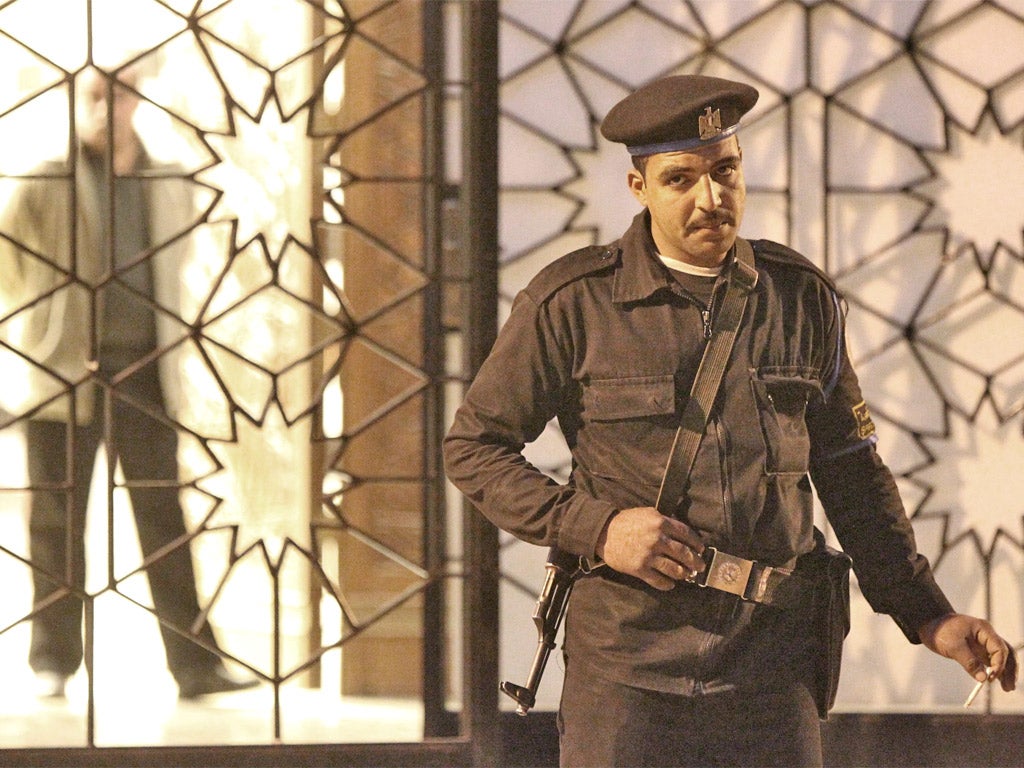Relentless rise in the number of Britons arrested on holiday
Cases soar in Egypt despite tourism slump but Spain is still the big worry

Your support helps us to tell the story
From reproductive rights to climate change to Big Tech, The Independent is on the ground when the story is developing. Whether it's investigating the financials of Elon Musk's pro-Trump PAC or producing our latest documentary, 'The A Word', which shines a light on the American women fighting for reproductive rights, we know how important it is to parse out the facts from the messaging.
At such a critical moment in US history, we need reporters on the ground. Your donation allows us to keep sending journalists to speak to both sides of the story.
The Independent is trusted by Americans across the entire political spectrum. And unlike many other quality news outlets, we choose not to lock Americans out of our reporting and analysis with paywalls. We believe quality journalism should be available to everyone, paid for by those who can afford it.
Your support makes all the difference.The number of British visitors arrested in Egypt has doubled in a year, according to Foreign Office (FCO) figures released today.
The large increase occurred despite a sharp fall in tourism overall since civil insurrection began there early last year.
Consular staff in Cairo handled 66 cases up to the end of March this year, compared with 34 for the previous year. Worldwide, one UK citizen is arrested on average every 90 minutes, according to the FCO figures.
A spokeswoman for the FCO said: "Since the political upheaval we've noticed a crackdown on enforcing existing laws including those around immigration issues. Egyptian authorities are strict on out-of-date visas. Many people don't realise that if the visa is out of date by more than 14 days, then they won't be allowed to leave the country."
Immigration rules for Egypt are more complicated than for other countries bordering the Mediterranean.
The majority of UK holidaymakers stay on the Sinai Peninsula at resorts such as Sharm El Sheikh and Dahab. No visa is required, unless the traveller ventures into other parts of Egypt.
The FCO also reports cases of mistaken identity at frontiers. "Someone having the same, or similar, name to a person on the Egyptian 'stop list' can result in someone being detained whilst checks are done," said the spokeswoman.
UK consular staff handled a total of 6,015 arrests of British nationals abroad, up 6 per cent on the previous year. On a typical day, 16 UK travellers are arrested – one every 90 minutes. Half those arrested were under 34. Large increases in arrests were also recorded in China (14 per cent), Canada (23), Belgium (26) and India (44).
But in terms of absolute numbers, the Foreign Office is much more concerned about the 9 per cent rise in arrests in Spain, the most popular country for British holidaymakers.
There were 1,909 arrests there – almost one-third of the total and a 160 rise on the previous year. Many were for alcohol-related offences in the Balearic islands. Resorts such as San Antonio in Ibiza and Magaluf in Mallorca remain very popular with young Britons. David Thomas, the consular regional director for Spain, based in Madrid, said local police have a "zero tolerance" attitude towards drink-fuelled offences: "We see many young people being arrested for causing trouble outside bars and clubs. All too often they think they'll spend the night in a cell before being let out. They soon sober up when they realise they're alone in a foreign prison cell, unsure of when they'll be released and unable to speak to officers because they don't speak the language."
The number of arrests in the UAE – notably Dubai – fell by 7 per cent, but remains at more than 200 a year. Pauline Crowe, chief executive for the charity Prisoners Abroad, said: "The UAE has always set out a very low-tolerance for certain illegal actions. You only need to look at the list of prohibited drugs to see the extent of that."
The Consular Affairs minister, Jeremy Browne, said: "Having a British passport does not make you immune to foreign laws and will not get you special treatment in prison."
Avoiding trouble
Greece Do not take photographs or make notes near military or official installations, as this will be treated as suspicious behaviour, the FCO says.
Iceland Smoking in public is against the law and "dealt with swiftly, a warning is handed out before arrest takes place".
Malaysia Be careful how you dress as "in some cases it has been reported that failure to adhere to the specific requirements of dressing respectably have been met with short-term jail sentences."
Moldova Photographing buildings is "viewed as a threat to internal security".
Senegal Public affection between men may lead to arrest. "Embracing in a hug may be viewed as homosexual activity and therefore liable to term in jail," the FCO warns.
UAE Avoid road rage as "offensive gestures and bad language used at other drivers can lead to fines, a jail sentence, and possibly deportation".
Uzbekistan Be careful with medicines as "carrying prescription medication without a doctor's note can lead to arrest".
Join our commenting forum
Join thought-provoking conversations, follow other Independent readers and see their replies
Comments